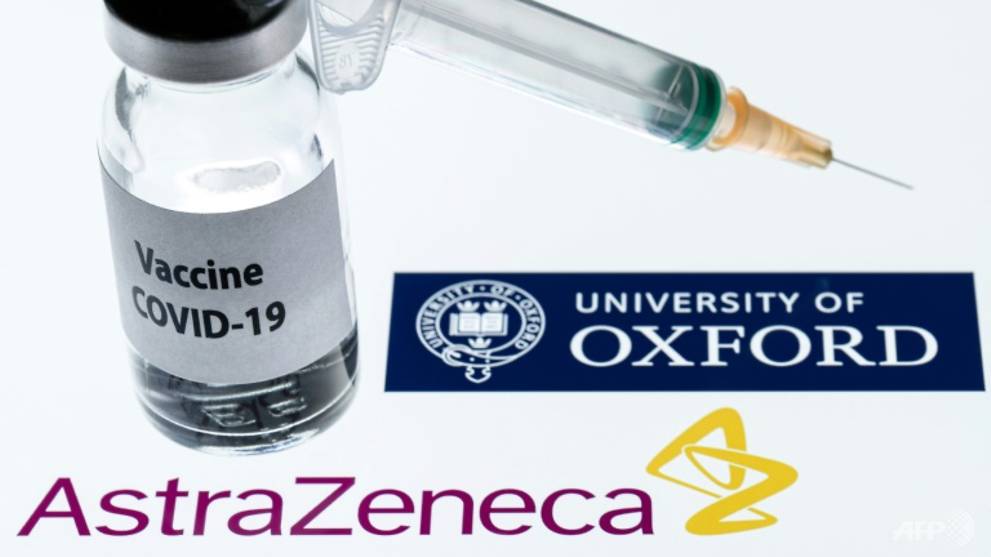
[ad_1]
LONDON: The head of British drug maker AstraZeneca said on Thursday (Nov 26) that more research was needed on its COVID-19 vaccine after questions were raised about the protection it offers, but additional testing is unlikely to affect the regulatory approval in Europe.
Rather than add the trial to an ongoing process in the US, AstraZeneca could launch a new study to evaluate a lower dose of its vaccine that worked better than a full dose, AstraZeneca CEO Pascal Soriot said, in a Bloomberg News report.
READ: UK asks regulator to evaluate AstraZeneca-Oxford vaccine amid questions
AstraZeneca and its partner, the University of Oxford, announced Monday that they were seeking regulatory approval for the vaccine after it showed an average effectiveness of 70 percent.
That rate jumped to 90 percent, similar to rival vaccines in development by Pfizer / BioNTech and Moderna, when an initial half dose and then a full dose were administered to a subset of trial participants by mistake.
American scientists have said that the highest rate of effectiveness occurred during testing in people 55 and younger and was discovered by accident during clinical trials.
The head of the Oxford Vaccine Group, Andrew Pollard, said this week that more evidence will be available next month, but the result remains “very significant.”
“Now that we’ve found what looks like better efficacy, we have to validate this, so we need to do an additional study,” Soriot said.
He said he hoped it would be another “international study, but this one could be faster because we know the efficacy is high, so we need fewer patients.”
READ: AstraZeneca manufacturing error clouds COVID-19 vaccine study results
The additional trial is not likely to delay regulatory approval in Britain and the European Union, Soriot said.
When asked about the Bloomberg report, an AstraZeneca spokesperson said there was “great merit in continuing to investigate the half-dose / full-dose regimen.”
“We are evaluating the data further and will work with regulators on the best approach for further evaluation,” he said.
“This would be in addition to data from existing trials that are currently being prepared for regulatory submission.”
There are high hopes for the AstraZeneca / Oxford vaccine, which Pollard has hailed as a “vaccine for the world,” given that it could be cheaper to make and easier to store and distribute.
It can be stored, transported and handled under normal refrigeration conditions of two to eight degrees Celsius for at least six months.
The Pfizer / BioNTech offering calls for temperatures of -70 degrees Celsius, which increases costs and makes it potentially out of reach for low- and middle-income countries.
AstraZeneca / Oxford is also committed to providing its vaccine to the developing world on a non-profit basis.
WAIT AND SEE
The World Health Organization said it looked forward to the full release of the trial data.
“In a review of the detailed data, we will be better positioned to understand the performance of the vaccine,” he said.
READ: ‘Infodemic’ risks endangering COVID-19 vaccines: WHO
England’s chief medical officer Chris Whitty also cautioned against drawing premature conclusions and urged patience until the data is published in peer-reviewed journals.
“It is always a mistake to make too many judgments at the beginning and in particular before the independent regulator has had a chance to see the results,” he told a news conference.
Helen Fletcher, a professor of immunology at the London School of Hygiene and Tropical Medicine, said the available safety data on the vaccine had been “very strong.”
“It is possible that a lower starting dose of the vaccine could result in a higher efficacy of the vaccine … More is not necessarily better when it comes to vaccines and immunotherapies,” he said.
“It is also possible that a strong immune response to the first vaccine can effectively block an immune response to the second injection of the same virus.”
READ: After a yearlong sprint, COVID-19 vaccines are finally at hand
Fletcher’s colleague, professor of pharmacoepidemiology Stephen Evans, said that speculation about the age distribution in the trials “was not helpful to anyone.”
“We have good reason to trust that regulation in this high-profile area will be done with the same or more care for these vaccines than for any others in the past,” he said.
Gillies O’Bryan-Tear from the UK College of Pharmaceutical Medicine said that “the eventual efficacy rate may change” but “the validity of the results from the low dose / high dose group is unlikely to be questioned “.
“Even if they (regulators) decide to ignore the results of the low dose / high dose group, the study of the high dose / high dose patients will still be very significant, but I think it is unlikely,” he said.
CHECK THIS: Our comprehensive coverage of the coronavirus outbreak and its developments
Download our app or subscribe to our Telegram channel for the latest updates on the coronavirus outbreak: https://cna.asia/telegram